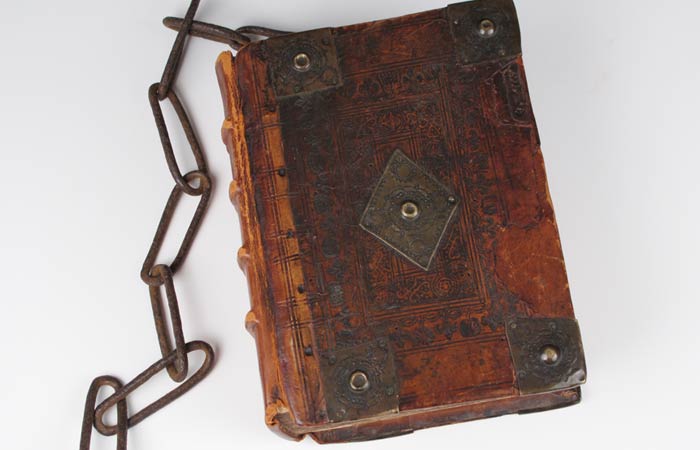Enemy of the Bible?
A while back I did a post where I gave a “Quick Apology” concerning the charges that the Catholic Church chained Bibles. I came across this article from Dave Armstrong this week where he gives a fuller response:
"We are travellers…not yet in our native land" – St. Augustine
A while back I did a post where I gave a “Quick Apology” concerning the charges that the Catholic Church chained Bibles. I came across this article from Dave Armstrong this week where he gives a fuller response:
In today’s Quick Apology post I wanted to turn to the subject of history…
When speaking about the Catholic approach to Scripture, some Protestants will make the following accusation:
“The Catholic Church used to chain up Bibles!”
The statement is absolutely true; it was not uncommon prior to the Reformation for Bibles to be chained up. When I am told this in a discussion I concede the point, but I then ask the person speaking if they know why this was done…
It is not uncommon to receive as a response, “They chained them up to stop people reading the Bible!”. While the initial statement was true, this explanation as to why Bibles were chained is completely incorrect. In fact, Bibles were chained for completely the opposite reason. Bibles were chained up so that more people had access to the Scriptures!*
You see, prior to the Fifteen Century and the invention of the movable type printing press, Bibles were hand-written. This was an colossal undertaking and therefore extremely costly. This meant that Bibles were expensive items liable to be stolen by thieves. Therefore, in an attempt to provide people with access to the Scriptures, it was common for a Bible to be made available in or around a church building, but to prevent theft, it was chained to a heavy object. If you had a Bible worth tens of thousands of dollars, would you want to leave it unsecured and unattended in a public building?!
If you visit a post office or a bank, you will often see pens chained to immovable services. Do these institutions chain these pens because they don’t want you to use them? Of course not! They want you to use the pens, but they want to make sure nobody steals them! Why? Because if they are stolen then other people won’t have the opportunity to use the pens. It is the same logic at work concerning the chaining of Bibles.

* It is probably worth pointing out that literacy rates were also extremely low even until the 19th Century. It is for this reason that the most common way of learning the Bible throughout Christian history has been the hearing the Scriptures proclaimed at the Eucharistic liturgy.